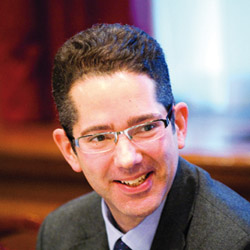 The quality of expert witness reports in the family courts was put in the spotlight at a Westminster Hall debate on 24 May.
The quality of expert witness reports in the family courts was put in the spotlight at a Westminster Hall debate on 24 May.
Justice Minister Jonathan Djanogly said that the rules would be changed to ensure expert reports are only used when they are “necessary to determine a case”.
The Minister added: “Expert evidence will of course continue to be important in some cases to ensure a fair and complete process. Where expert evidence is required, we are working to ensure that it is of high quality and delivered promptly.
“The main elements are raising the threshold for the court to permit an expert to be instructed; requiring expert witness evidence to be necessary, rather than reasonably required; and in family proceedings concerning children, there will be a list of factors that the court must explicitly consider in deciding whether to permit an expert to be instructed. Those factors include the impact on the child of a delay and undergoing an assessment, the cost, and whether the information could or should be provided by one of the parties, such as the local authority. We will also require the court to exercise better control over the questions put to the expert and require solicitors to undertake preparatory work earlier in the process to reduce delays in the experts beginning work.”
The debate came in the wake of groundbreaking research carried out by the University of Central Lancashire (UCLan), which showed that the quality of psychological experts and their reports show some inconsistencies.
Evaluating Expert Witness Psychological Reports: Exploring Quality, was part funded by the Family Justice Council as part of their commitment to expert witness work and the continued review of standards across all expert witnesses.
The study examined 126 expert psychological reports submitted in family court proceedings from 180 court bundles across three courts in the UK. Court proceedings took place between 2009 and 2011 and covered both adult and child assessments.